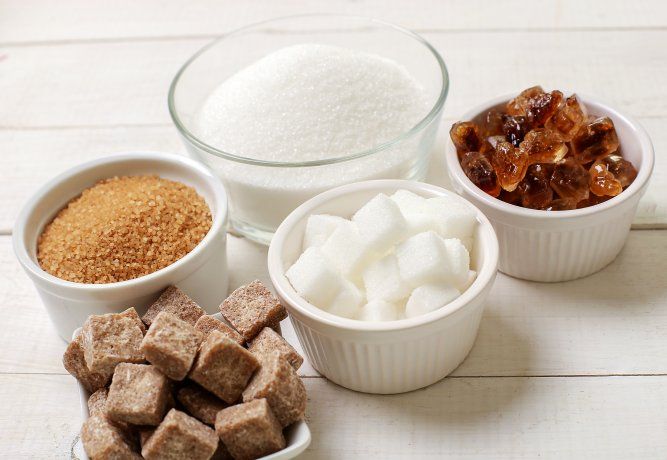Nutrition specialists recalled that Sugars should not represent more than 10% of the total caloric intake in both adults and children, and that their excessive consumption is associated with a greater risk of chronic diseases such as diabetes, obesity, high blood pressure and cardiovascular diseases., within the framework of Sugar Consumption Awareness Week. Also be warned about its sweetening substitutes.
This initiative of the organization World Action on Salt, Sugar and Health, aims to raise awareness about the impact of sugar consumption on health and began to be celebrated in 2021.
According to what is established by the World Health Organization (WHO), it is important to limit the intake of free sugars in adults and children, reducing this type of sugar to less than 10% of total caloric intake.
What are the benefits and dangers of consuming sugar?
While its consumption also has benefits – in terms of providing quick energy – its excessive consumption can be addictive, lead to a cycle of overeating, and promote a diet poor in essential nutrients.
In turn, it contributes to weight gain and obesity due to its high calorie content, can increase the risk of chronic diseases such as type 2 diabetes and heart disease, promote the deterioration of oral health and cause fluctuations in sugar levels. in the blood, leading to sudden changes in energy and mood.
“The sweeteners They may be a beneficial alternative for certain people, particularly those looking to regulate their blood sugar level or decrease their calorie intake. However, it is crucial that they be consumed in moderation and integrated into a balanced diet,” said nutrition specialist Patricia Chávez from DIM Health Centers.
sweetener.webp
Sugar or sweeteners: Which is better?
Regarding their replacement with sweeteners, Chávez stated that these products “do not necessarily promote weight loss or better blood sugar control if consumed in excess along with other high-calorie foods and beverages.”
In relation to the difference between synthetic sweeteners and stevia, The specialist explained that the latter is natural and has zero calories.
“In addition, it is often chosen for its ability to sweeten without affecting blood sugar levels, making it a popular choice for people with diabetes or those looking to reduce their sugar intake,” he said.
However, “it should be used with caution, as excess can have side effects.”
“Ultimately, the key is moderation and individualization: what favors one person may not be suitable for another, so it is always important to consult with a Nutrition graduate to obtain a personalized recommendation,” he added. .
sweeteners

freepik.es
Other alternatives to sugar and sweeteners
The other natural alternative to sugar to sweeten foods is honey, which has advantages and disadvantages
“Honey contains some nutrients, making it a better option than regular sugar. However, both honey and sugar should be consumed in moderation due to their high calorie content and impact on blood sugar levels,” he said.
It is possible to “reduce sugar consumption safely” with “small changes in lifestyle”, such as “reading food labels carefully” leaving aside those that have added sugars, “opting for fresh and natural foods “, cooking one’s own food, “drinking water, herbal teas or water with fruit slices instead of packaged soft drinks and juices” – which are also “associated with a greater risk of deterioration in oral health – and “gradually reducing the amount of sugar that is added to coffee, tea, mate or cereals”
“It is essential to recognize the serious health problems associated with excessive sugar consumption, such as an increased risk of developing chronic diseases such as type 2 diabetes. In addition to weight gain, obesity, increased risk of heart disease, high blood pressure and problems joints,” he noted.
He added that “excess sugar in the diet can cause variations in energy levels and negatively affect mood and sleep quality.”
Chávez explained that if it is so difficult to resist eating sugar, it is because “when sugar is consumed, the brain releases dopamine, a neurotransmitter that makes the person feel good,” and the best way to control the effects is to “maintain a balance in your diet, prioritizing foods rich in fiber, protein and healthy fats to stay satisfied for longer.”
Source: Ambito
I am an author and journalist who has worked in the entertainment industry for over a decade. I currently work as a news editor at a major news website, and my focus is on covering the latest trends in entertainment. I also write occasional pieces for other outlets, and have authored two books about the entertainment industry.




